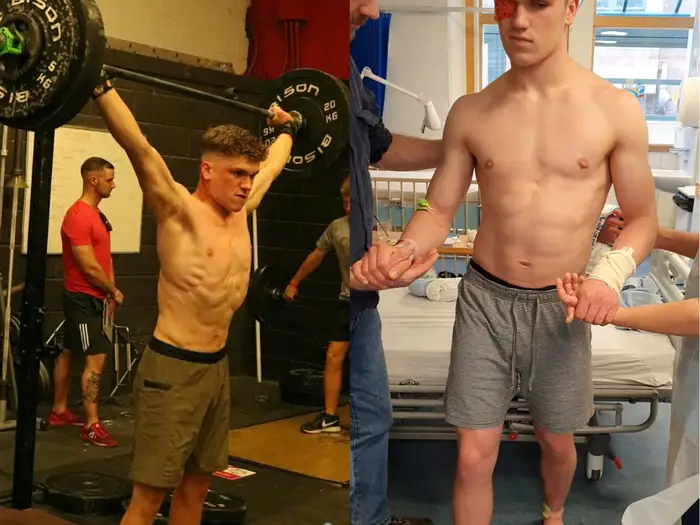Murcia’s Virgen de la Arrixaca Hospital to be Spain’s First
Thanks to the Fundación Aladina, the Virgen de la Arrixaca Hospital in Murcia will be the first in Spain to have exclusive pediatric facilities designed to improve treatment and quality of life for children with cancer.
While exercise is beneficial for overall health, it has been scientifically proven to reduce the toxicity and side effects of cancer treatments. For pediatric patients, the benefits extend beyond the physical and psychological realms, offering a sense of normalcy in lives marked by hospitalizations, surgeries, and extended stays in outpatient clinics. It allows children to “maintain their childhood despite cancer” because “play and sports are essential for a child to have a healthy childhood,” explains Ishtar Espejo, director of the Fundación Aladina, a national organization dedicated to improving the quality of life of pediatric cancer patients.
A New Initiative: A Specialized Gym
Therefore, the charitable organization, which has been promoting sports among these children since 2012, has set out to build the first gym specifically designed for children with cancer. Located at the Virgen de la Arrixaca Hospital in Murcia, where an average of 60 new cases of childhood cancer are diagnosed each year, the gym will cost €800,000. The fundraising efforts are already underway.
Espejo is enthusiastic about this project, which will allow children undergoing treatment to perform specific exercises in “optimal” conditions and facilitate new scientific research on sports as a complement to childhood cancer treatment. The existing scientific evidence supporting these benefits led the Fundación Aladina to implement a physical exercise program in 2012 at Madrid’s Niño Jesús, 12 de Octubre, and Gregorio Marañón hospitals, as well as the Murcia hospital.
Current Exercise Programs and Their Impact
In all these hospitals, children currently perform exercises guided by a specialized instructor, but they do so in small spaces or areas borrowed from other specialties, such as physiotherapy and rehabilitation. At the Murcia hospital, where the foundation provided sports support to 117 children with cancer in 2023, children undergoing treatment exercise under the guidance of sports educator Raúl Lidón in almost any available space: corridors, waiting rooms, playrooms, and even their own rooms. Thais, a 10-year-old girl undergoing treatment for leukemia, was the first patient at the hospital to have a stationary bike installed in her room, which she began using under Lidón’s guidance during her recovery from a bone marrow transplant, according to her mother, Blanca Bonilla.
Positive Impact on Patients and Families
Many mothers join the exercise program with their children. Dianira Padilla practices with her 11-year-old son, Robert, who also has leukemia, as it helps them both to “distract themselves.” She says that being able to exercise significantly boosts their mood, as the harsh treatment her son receives causes significant emotional side effects, including “very strong mood swings” that have been minimized with this program. However, the improvement is also physical. After spending six months in bed, Robert had difficulty walking and had lost strength and muscle mass. His mother believes this exercise program has been crucial to his recovery.
Scientific Backing
These positive experiences are not merely subjective; they are backed by scientific studies, explains José Luis Fuster, head of the Pediatric Oncology-Hematology department at the Murcia hospital. He notes that there is ample evidence that exercise improves many of the side effects of aggressive treatments in cancer patients. When these individuals exercise, they experience reduced asthenia and chronic fatigue, decreased pain, and increased muscle and bone mass, which is often lost during treatment. Additionally, exercise has a positive impact on socialization and “normalization” of life, and it “relaxes the tension of the hospital environment for both patients and their families.”
Hospital’s Openness to Collaboration
Fuster is very pleased that the Fundación Aladina has chosen the Arrixaca for its gym project. The pediatric oncology area, which was launched 27 years ago, has grown substantially, and “medical care is fully guaranteed,” but “the public health system has its limitations,” he acknowledges, especially for “complex” pathologies like cancer, “with a serious diagnosis in the case of children and adolescents, generally with very long hospitalization periods and severe side effects from treatment.”
The New Gym: A Vision for the Future
The director of Aladina, Ishtar Espejo, emphasizes that the new infrastructure will mark a before and after in the hospital’s pediatric area. Although Aladina works specifically with cancer patients, this gym will be open to “all pediatric patients in the hospital and their families,” regardless of their illness. She explains, “The scientific evidence of the benefits of exercise in cancer and other pathologies is clear. Sometimes, administration lags behind science. Our goal is to apply this scientific evidence as soon as possible and, of course, for all hospitalized children to benefit.”
Collaboration with Other Organizations
Outside the hospital, a similar initiative for adult cancer patients has been underway in the Murcia region for two years. Founded by Vladimir Salazar, a doctor at the Virgen de la Arrixaca who was diagnosed with colon cancer, the Never Surrender foundation has established a network of gyms offering personalized training to acute oncology patients. Following Salazar’s passing in 2022, the foundation continues to grow.
Never Surrender and Aladina have begun collaborating in the region to ensure that children with cancer who participate in Aladina’s sports programs can continue their exercises outside the hospital using the facilities of the Murcian organization. They have also worked together to organize fundraising events for the pediatric gym.
The shared goal of both organizations is to improve the prognosis and quality of life of pediatric cancer patients.
